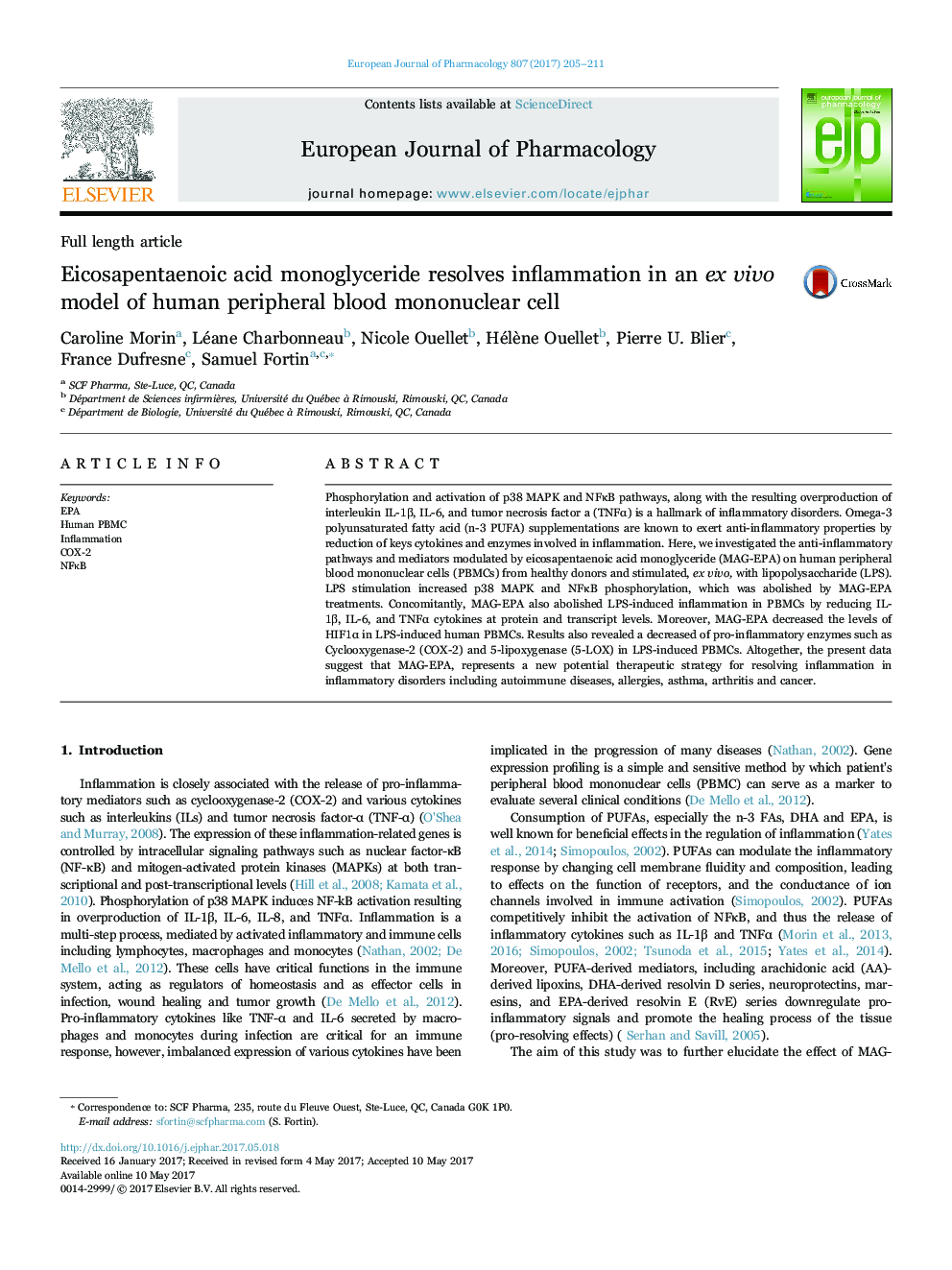| Article ID | Journal | Published Year | Pages | File Type |
|---|---|---|---|---|
| 5554581 | European Journal of Pharmacology | 2017 | 7 Pages |
Phosphorylation and activation of p38 MAPK and NFκB pathways, along with the resulting overproduction of interleukin IL-1β, IL-6, and tumor necrosis factor a (TNFα) is a hallmark of inflammatory disorders. Omega-3 polyunsaturated fatty acid (n-3 PUFA) supplementations are known to exert anti-inflammatory properties by reduction of keys cytokines and enzymes involved in inflammation. Here, we investigated the anti-inflammatory pathways and mediators modulated by eicosapentaenoic acid monoglyceride (MAG-EPA) on human peripheral blood mononuclear cells (PBMCs) from healthy donors and stimulated, ex vivo, with lipopolysaccharide (LPS). LPS stimulation increased p38 MAPK and NFκB phosphorylation, which was abolished by MAG-EPA treatments. Concomitantly, MAG-EPA also abolished LPS-induced inflammation in PBMCs by reducing IL-1β, IL-6, and TNFα cytokines at protein and transcript levels. Moreover, MAG-EPA decreased the levels of HIF1α in LPS-induced human PBMCs. Results also revealed a decreased of pro-inflammatory enzymes such as Cyclooxygenase-2 (COX-2) and 5-lipoxygenase (5-LOX) in LPS-induced PBMCs. Altogether, the present data suggest that MAG-EPA, represents a new potential therapeutic strategy for resolving inflammation in inflammatory disorders including autoimmune diseases, allergies, asthma, arthritis and cancer.
